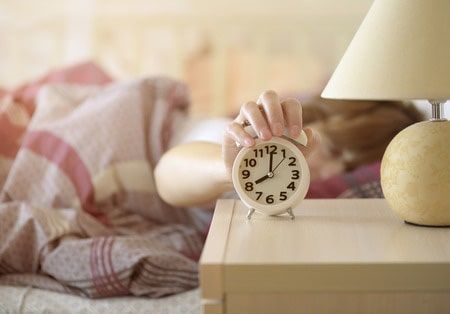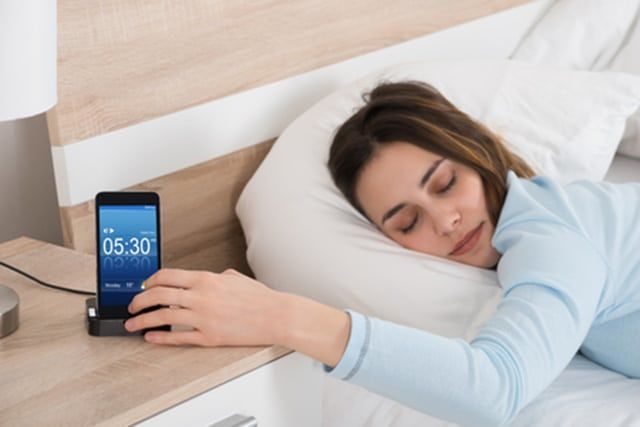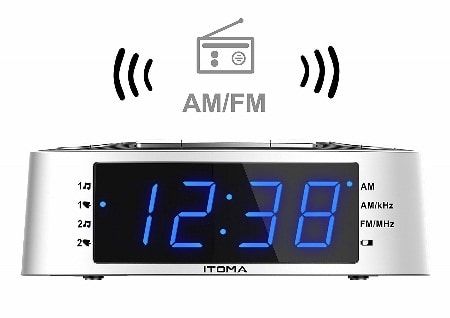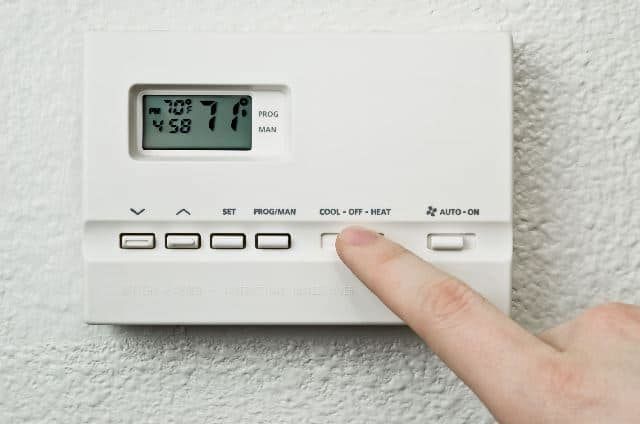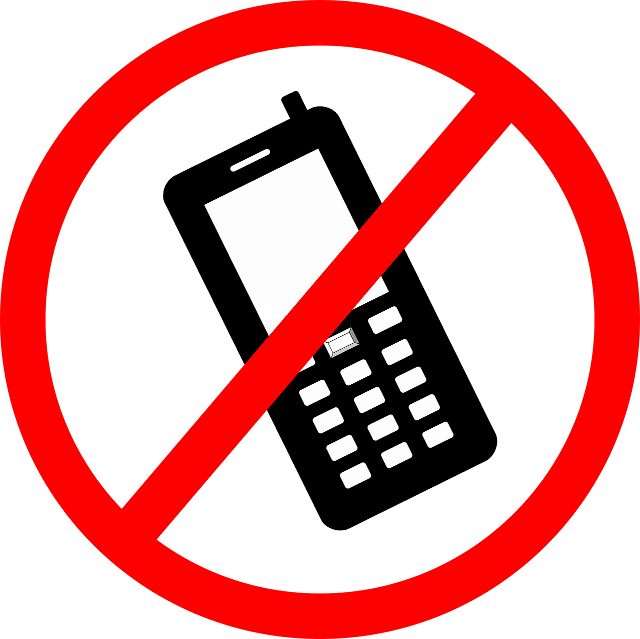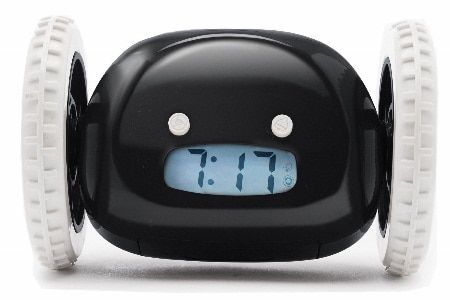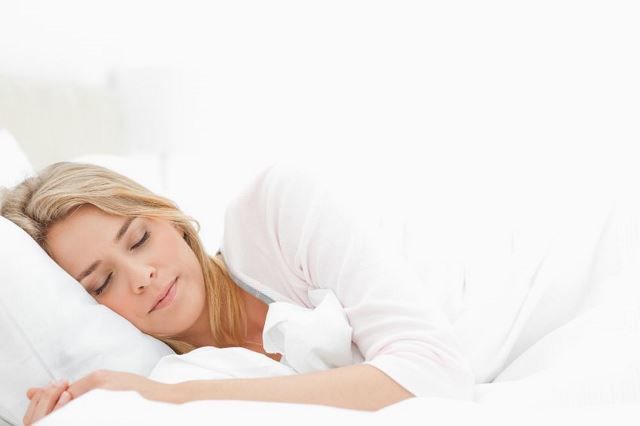How many of us are woken by an alarm in the morning and the first thing that comes into your head is “just five more minutes”? Hitting the snooze button might make you think you’re getting a few more minutes rest before you have to get up for the day, but the reality is it can actually be bad for your health.
Science explains how continually sneaking five or ten more minutes sleep is actually detrimental and doesn’t help you feel more rested in the long run.
This list explains why you need to stop hitting the snooze button in the morning and we put together a great list of tips which tell you how to give up the snooze button.
So read through these and give them a try. You could find yourself being more productive and alert among other things, and finally get rid of that dreaded feeling you get as the alarm goes off on a Monday morning.
Why is Pressing the Snooze Button Bad for Your Health?
When the alarm goes off, hitting that snooze button and getting an extra ten or 20 minutes sleep can feel like you’ve stolen back some precious rest time and made you feel better. You might even feel smug that you’ve managed to stay in bed a little later and some people even set their alarms for thirty minutes before they actually need to get out of bed to build in some “snooze time”. But several studies have shown that using this to get some extra sleep is actually bad for your overall health.
What actually happens when your alarm goes off for the first time is your brain recognizes the sound and starts to wake your body up for the day. If you hit the snooze button, science explains this just confuses your brain which thinks it is a “false alarm” and stops waking you up and allows your body to go back to sleep.
When the “snooze period” ends, your brain is left bewildered as it is jerked back awake and has to start the waking process all over again. If you do this repeatedly (and let’s face it most of us do!) your brain becomes more and more unsettled and it throws your whole waking routine off. This is why you can still feel sluggish and fatigued through the morning even if you did spend an extra thirty minutes “asleep”.
Another reason you need to stop using the snooze button is to make sure you always wake up at the same time. Setting a “bedtime” and a “wake time” will help your body get into a routine and eventually you could even wake up at the right time without an alarm. Continually hitting snooze means you’re getting up at different times every day and it throws your whole routine out of whack. This has a knock-on effect at the other end of the day as when you’re trying to go to sleep your body isn’t naturally tired at the same times due to the varying sleep and wake times so you could find it harder to get to sleep.
Breaking the Habit
Finding out how to stop using the snooze button isn’t going to be an easy journey. Chances are, you’ve been sleeping (or snoozing!) this way for most of your adult life or even longer if you can remember hitting the snooze button to avoid school or college. There are a lot of ways to stop hitting the snooze button, and plenty of tools you can use to help, but breaking a habit all comes down to the amount of effort you put in and the strength of your willpower.
Remember why you are doing it, sleeping this way is bad for your health so every time you start to lapse back into bad ways and keep hitting the snooze button, re-read this article or remember how much better you felt when you did get up at the correct time and that should give you the motivation you need to continue breaking that habit!
Studies show it only takes as short a time as 21 days (or three weeks) to form a new habit so if you can persevere for just three weeks you could easily break the cycle and be on your way to a healthier sleep pattern. The average time to form a new habit is around 66 days, however, so if you haven’t cracked it after a month keep trying, you will get there in the end!
Put Your Alarm Clock Out of Reach
One of the best ways to get yourself out of bed in the morning is to physically force yourself up! If you can easily reach your alarm clock, it is all too easy just to hit that snooze button and go back to sleep for a few minutes. Try putting your alarm over the other side of the room to your bed. This means when it goes off (make sure it is loud enough that it will wake you from the other side of the room!) you will actually have to get up to switch it off which makes it a lot easier to stay out of the bed.
If you find you’re on autopilot and can actually get up, walk across the room and switch off your alarm before retreating back to bed, try to make it more of a challenge. Move your alarm into different places every few days to stop you getting into a new habit and this will help you wake yourself up – if only while you search for the alarm!
Reward Yourself
Set yourself little goals before you start trying to stop hitting snooze and you will be able to chart your progress much easier. Use a notebook or even a goal tracking app on your phone to set milestones along the way and help you keep on target. You don’t have to set huge goals, you can even just give yourself a target of not hitting the snooze button for three times in one week and then build it from there. Or you could even log how many times in a row you get up without having to sneak in those few extra mini periods of sleep and reward yourself when you hit a specific target.

Coffee Pot Timers

The smell of freshly brewed coffee will surely get you out of bed and stop using the snooze button! And if you don’t want to get an integrated coffee machine and an alarm, why not set up your coffee machine the night before with your favorite beans and cup then set it on a timer plug so it will automatically start five minutes before your alarm goes off. That means you’ll be forced to get up and get into the kitchen before your coffee goes cold!
The average American spends $1,100 a year on coffee from coffee shops so making your brew at home in the mornings can actually save you money as well as time.
Use a Radio or Music Rather Than a Traditional Alarm
Alarms aren’t meant to sound great, but for some people the shrill ringing of a bell or buzzing alarm noise can be really irritating and set your day off on the wrong foot. While traditional alarms are great for some people, if you’re finding yourself wanting to smash the alarm rather than just gently pushing the snooze button, then perhaps think about using a radio or setting up some music to come on and wake you rather than an alarm. You can buy a radio alarm clock which can be preset to wake you up to your favorite station and give you the news headlines or some music first thing.
It the radio isn’t your thing, then a CD alarm clock or iPod dock is also a great way to set an alarm. You could set it to play music at random from a playlist or actually select a specific song. The only tip with setting a specific song is that in time you may start to dislike this song! So best to change it up every week or so and choose a new song. If you choose an upbeat song or a tune that reminds you of happy times, it can actually help to boost your mood. There are some great suggestions for happy, mood-boosting music here or you can even set up a YouTube video here.
Heat Up Your Room and Make it Feel Cozy
When winter creeps in it can be even harder to get out of bed in the morning. The thought of getting up when it is dark outside and you can hear the wind and rain whipping around the outside of your house makes it so incredibly tempting to just hit snooze and stay snuggled up in the warm for even five minutes longer. Stop using the snooze button by making your room nice and cozy so you don’t feel like you will freeze once you crawl out from underneath the blankets.
Set your heating on a timer so it comes on an hour before you are due to get up and that will make sure your house is nice and warm for that early morning alarm. It will feel so much easier to get up and out of bed – especially if you take a shower in the morning. Put your towels on the radiator to make sure you have a cozy and warm way to get up in the morning and you can even lay out your clothes on the heater in your bedroom to make getting ready that little bit easier.
Make Your Bedroom a Digital Free Zone
Digital distractions can become an addiction. Your smartphone, TV and tablet computer can seem like a great addition and you might love laying in bed watching YouTube or scrolling through social media but what is happening, in fact, is you are confusing your brain and making it associate your bed as a place of work and activity rather than a peaceful haven for sleep.
Ditch your phone an hour before bed, switch off your laptop and put down any electronic devices. Try to do something which unwinds and relaxes you before bedtime but doesn’t involve staring at a screen. Read a book, listen to music or an audiobook or just have a conversation with your partner or family.
Clocky, the Alarm That Forces You Out of Bed
If you can find your alarm on autopilot, even if you put it all the way across the room or hide it in different places, then this product could be the answer! This ingenious clock actually runs away from you while it is going off. Clocky the alarm is on wheels and the minute you hit snooze, the wheels kick into motion and it randomly rolls around your room while letting off a loud alarm.
Not only will this stop you hitting the snooze button because if you do you’ll have to chase all around your bedroom after this clock, but it also makes sure you only hit snooze once even if you do because you’ll have to get out of bed and search for the clock to even hit snooze a second time. You can set it so it will immediately jump off the table when the alarm goes off, rather than waiting for you to hit snooze, but guaranteed you will only use the snooze button once if you have to chase this all around your bedroom!
Really Loud and Annoying Alarms
If you’re a heavy sleeper, using the snooze button can almost be done on autopilot and for some people even when they are still asleep! Getting a really loud alarmmeans you will definitely wake up the first time. This does mean you can still hit snooze, but hopefully, you will rely on your willpower to stop pressing snooze again and heading back to the land of nod. If you know you will end up trying to stay in bed, no matter how loud the alarm, then an annoying noise might be the answer. If you know that by hitting snooze you have to hear the same, really irritating alarm over and over again it might just put you off starting the snooze cycle altogether.
Smart Alarms to Wake You When it is the Right Time
If you don’t like the idea of running all over your bedroom for Clocky or suffering through a piercing, loud alarm every morning, then you could look at using a smart alarm. These alarms track your sleep and can even be worn on your wrist. They monitor your sleep cycle and wake you at a time when you are in the lightest stage of sleep. This way, it is easier for your brain to recognize you are waking up and you feel less lethargic and groggy.
You can get wristwatches, devices that you place in the bed and even an app you can download to help you get the best sleep. If you’re waking up at the right time for your body then it makes it much less likely that you will be desperate for those few extra minutes and will stop using the snooze button.
Wake Up With the Light
Another, more gentle, way to wake up is by using a light. There are loads of products on the market which help you wake up easier and these alarm clock lights are one of them. They work by gradually turning up the light in your room to simulate a sunrise and when the “sun” is at its fullest it can also set off a gentle alarm which increases in volume.
Most people find it more difficult to get up through the winter anyway as the darkness makes it harder to convince your body it is time to get up and start the day. This clock not only makes sure you’re waking up gradually which stops the sudden jerk into the consciousness of a regular alarm but can also battle the symptoms of the seasonal affective disorder.
You may want to read: Best Wake-Up Light Alarm Clock Reviews
Go to Bed a Bit Earlier
This is going to sound like a tip straight from the mouth of your parents, but going to bed a bit earlier really well help you get a better night’s sleep. An adult needs seven to nine hours sleep per night but most people are only getting six hours on average. You might think one hour doesn’t make that much difference but studies show it can slow down productivity, make you feel lethargic and lack motivation. Losing just one hour can also depress your immune system and affect the overall health of your body.
Plan Ahead the Night Before
Sometimes hitting the snooze button is more about not being able to face the day rather than feeling tired. The thought of the mountain of housework in front of you or the unfinished tasks you have at the office can make you want to bury yourself under the covers. It is really important to clear your mind before sleep to make sure you get a good rest but planning ahead also means you are ready to wake up and face a new day.
Lay out your work clothes, put everything you need in one place (car keys, handbag, lunchbox etc.) and if you can pre-prepare your breakfast so you can just heat it up and go. Write a list of jobs you have to do and place it somewhere you can see it when you wake up. Knowing all of this is taken care of and everything is in its place will help you tackle the day ahead. If you are consistently finding it mentally difficult to get out of bed, however, it may be worth speaking to your GP about any underlying mental health problems such as depression.
Have Something Positive to Wake Up To
Getting yourself in the right frame of mind to face the day ahead can start as soon as you open your eyes. If you find getting up in the morning difficult, having something positive to do when you wake up can really make a difference. Maybe write down different positive quotes on paper and stick one above your bed before you sleep so it is the first thing you see when you wake up. Or even just place a favorite picture or vase of flowers on your nightstand so the first thing you see in the morning is something beautiful.
Drink Some Water
You should be drinking a glass of water as soon as you get up anyway but adding this to your morning routine can help you feel more alert. Drinking 500ml (a regular size bottle of water) first thing in the morning helps you flush any toxins from your body, aids digestion and can even help you eat less after fasting overnight.
If you think about it, your body goes for eight or nine hours a night without any food or water so often the hunger you feel when you wake is really thirst. To stop yourself snoozing, put a bottle of water in the fridge and don’t leave water in your bedroom. This means you will physically have to get up and out of bed to fetch your drink which will help you get up in the morning.
Give Your Brain a Quick Workout
Getting yourself active in the morning isn’t just about making yourself physically move from the bed, getting your brain moving and active is also a good first thing. Try reading something light like a few pages of a book or if you’re feeling a little more adventurous, do a Sudoku puzzle or a crossword to get your brain moving and active. There are specialist brain training exercises you can fit into your morning routine which will help you get rid of that early morning fog.
Conclusion
So if you’re slamming down the snooze button every morning, use these tips to stop using the snooze button and get yourself on the right track to a happier and healthier sleep cycle.
If you get an alarm clock that runs away from you if you dare to hit snooze or even waking yourself up to the smell of freshly brewed coffee, the benefits of not snoozing every morning will mean you feel more alert and awake through the morning and will stop that foggy feeling you have.
Hopefully, this advice has been helpful and please comment below to say if anything has worked for you or if you have any more information on how to stop hitting the snooze button. If you know anyone that struggles to get out of bed in the morning, then share this article with them to help them get their day started the right way.
